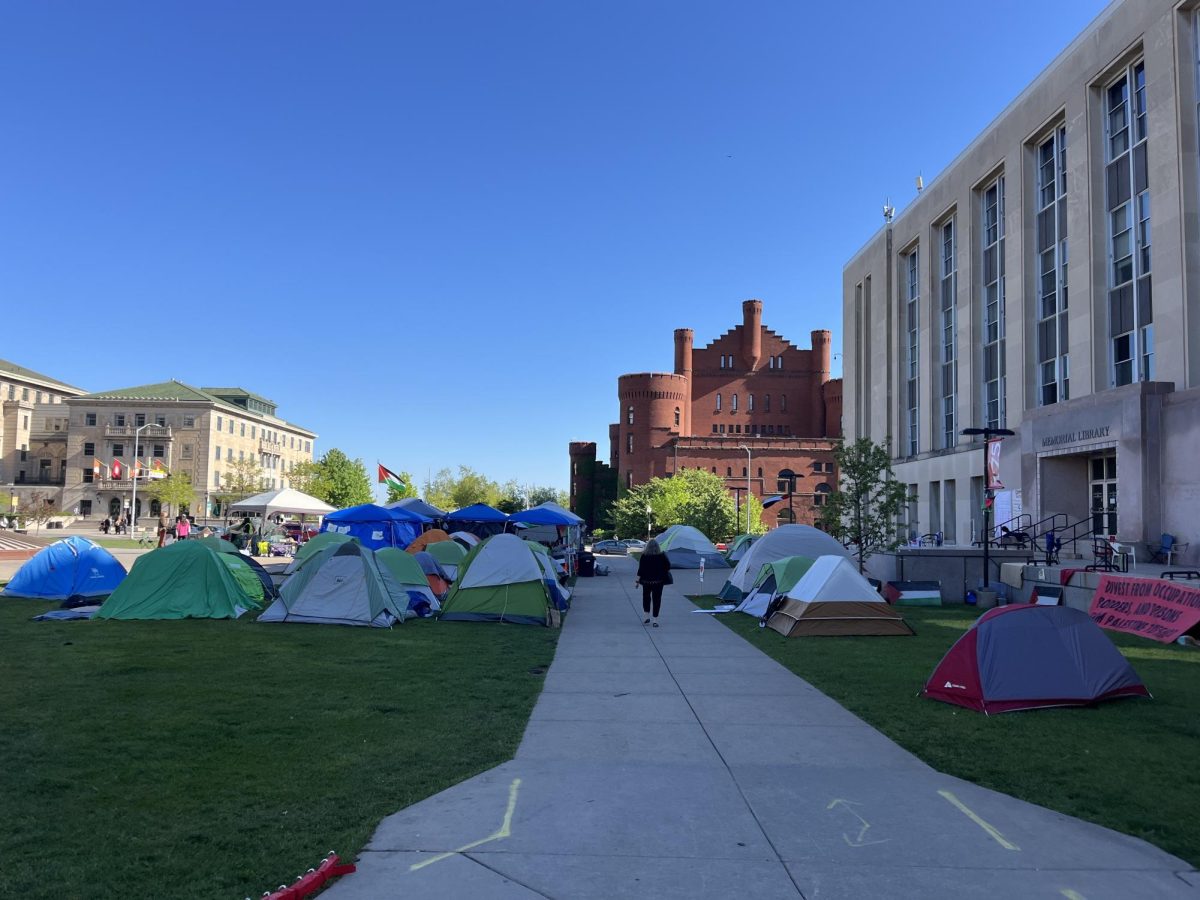Scholars presented findings and research about the ups and downs of an increasingly volatile pattern of state funding for higher education at the University of Wisconsin Tuesday.
Hosted by the Wisconsin Center for the Advancement of Higher Education, the annual forum invited scholars to share research concerning the relationship between state budget processes and higher education funding.
According to Noel Radomski, managing director for WISCAPE, the purpose of the forum was to “present information to help administrators, policy makers and community members who are struggling with current issues.”
Through the information presented at the forum, WISCAPE hoped to bridge the gap between scholars and policy makers by developing accessible information.
“We want to spread the information conveyed here today. We’ll be pushing the findings to other agents,” Radomski added.
Jennifer Delaney, assistant professor for the Department of Educational Leadership and Policy Analysis at UW, and William Doyle, assistant professor for the Department of Leadership, Policy and Organizations at Vanderbilt University, presented the “Balance Wheel Hypothesis,” a study performed from 1991 to 1999.
Delaney and Doyle worked together on the study in an attempt to explain the ever-changing state appropriations for higher education funding. From the “Balance Wheel” Delaney and Doyle were able to graph the “boom and bust” cycle of funding.
According to Delaney, when a state’s revenues are low, higher education is an attractive option for heavy cuts because these institutions have the ability to collect outside revenue via tuition and alumni donations. When state’s revenues are high, higher education becomes a politically appealing area to spend money.
Other outlets of state funding such as prisons, Medicaid and K-12 education are not able to support themselves independently of government expenditures, and thus states allocate a consistent amount of funding to these institutions regardless of external factors such as low state revenue or high unemployment, Delaney added.
Doyle said his and Delaney’s findings show “volatility,” or the ups and downs of state funding, is a recent development.
“We find that the level of volatility in state budgeting has increased over time, ranging from a very stable and predictable relationship in the 1960s to an extremely volatile relationship in the 1990s,” Doyle said.
According to Doyle, to address these problems, representatives from both the Legislature and universities must address volatility and spending directly. However, just talking about it does not mean increasing state spending.
“We must have these discussions as a way to rationalize budget situations so that we’ll be prepared if they do occur,” Radomski said.
A potential method to remedy the cut fluctuations is to allow institutions to build “rainy day funds.” These funds would allow institutions to have more control over their appropriations and to “self-manage the volatility that’s coming at them from a state level,” Doyle added.
According to Lee Hansen, professor emeritus of economics at UW, “volatility may be good,” in that reform in government is necessary every few years to wake people up. The government could be forced to rethink its actions and make innovative changes to fix market conditions.
“[The presentations] shed light on how rich and complex the challenge is,” Radomski said. “These discussions are necessary to address volatility and to build relationships. The goal is to trust and verify.”










